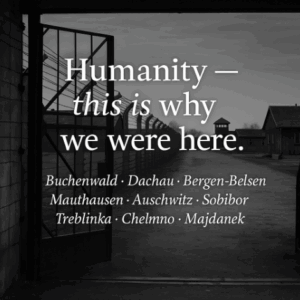 The Eyes of War: D-Day, From Hedgerows to Victory
The Eyes of War: D-Day, From Hedgerows to Victory
Nineteen. Hardened now. Eyes older than their years. Moving still — for country, for brotherhood, for the dead they carried forward.
The beaches were behind them. The cliffs climbed.
Now the fight turned inland. The fight turned personal.
The hedgerows.
Walls of earth and root — thick, ancient, twisting.
Every field a fortress. Every corner a kill zone.
They crawled. They clawed. They cleared.
Face to face. Grenades over hedges. Rifles under branches.
Machine guns waited. Mortars cracked. Mines maimed.
The wounded lay tangled in roots and wire. Their cries carried through the fields.
They fought one field at a time. One yard at a time.
Carentan. Saint-Lô.
Fought for. Won. Lost again. Won back.
No front line. No rest.
Brothers beside them. Brothers lost.
But they pressed on. They had no choice.
September 1944.
Operation Market Garden.
A bold stroke — fly fast, land deep, seize the bridges.
Push the war toward Germany’s heart.
Paratroopers dropped through flak.
Chutes filled the sky.
Tracer fire cut the night.
On the ground — chaos.
Bridges blown. German armor rolling.
Nijmegen held. Eindhoven held. Arnhem — too far.
Too far. Too late.
Men fought days without food. Without sleep.
In cellars. In ruins. In rivers — swimming under fire, dragging comrades, some drowned before bullets could find them.
The eyes of war saw courage — and bitter failure.
Market Garden was lost. The war ground on.
Winter 1944.
The Ardennes. The Bulge.
The last German gamble. The coldest hell.
Through the snow, they came.
Panzer columns. Tiger tanks. Elite troops.
Through the trees, they attacked.
Through fog and sleet and silence.
Bastogne surrounded.
Paratroopers dropped through flak and ice.
Some never reached the ground alive — caught in the trees, shot before they could lift a rifle.
Hanging there. A sight no soldier forgets. Whether it broke the law or not, it broke something in the soul.
Those who landed dug in.
Foxholes frozen. Rifles jammed. Rations gone.
No blankets. No medicine. No air cover.
Still — they fought.
The Germans sent a demand for surrender.
Brigadier General Anthony McAuliffe answered with one word:
“Nuts.”
The line would not break. The men would not yield.
Elsonborn Ridge. Malmedy. Saint-Vith.
Every yard paid in blood and frostbite.
Frostbitten feet. Blackened hands. Silent prayers in frozen foxholes.
In January, the Bulge was crushed.
The German army broken for good.
The eyes of war stared through snow and smoke — and held.
Spring 1945.
Through the Rhine. Into Germany.
Through cities of ruin. Streets of rubble.
Resistance desperate. Traps at every turn.
But the line moved forward. The war’s end in sight.
Then the gates opened.
• Buchenwald • Dachau • Bergen-Belsen • Mauthausen
• Auschwitz • Sobibor • Treblinka • Chelmno • Majdanek
The camps. The survivors. The dead.
The eyes of war that had seen beaches, hedgerows, and bullets now saw what no man should see.
Stacks of corpses. Ashes in pits. The stench of death. The skin and bones of those barely alive.
Eyes staring from hollow faces. Too weak to stand. Too numb to cry.
Barracks built for hundreds packed with thousands.
Gas chambers. Ovens. Children’s shoes by the thousands.
The eyes of the soldiers filled with rage — and grief.
The war had been about land. Now they knew: it had been about this. About humanity itself.
The weight of the dead lay on every man who walked through those gates. They would carry it home. They would carry it forever.
And the eyes that had seen too much saw now why they had come.
May 1945.
Unconditional surrender. Victory in Europe.
The guns fell silent. The war was won.
But the eyes of war would never close.
The cost:
-
U.S. military dead: over 400,000.
-
British military dead: over 380,000.
-
French military and resistance dead: 200,000+.
-
German military dead: over 5 million.
-
Civilian dead — uncounted. Millions.
-
The Holocaust — 6 million Jews murdered. Millions more in camps.
Nineteen. Hardened. Older than their years.
Some came home.
Many did not.
Those who lived carried the war in their eyes.
Those who did not — we must remember.
“Greater love has no man than this, that a man lay down his life for his friends.”
(John 15:13, Holy Bible)
“That from these honored dead we take increased devotion to that cause for which they gave the last full measure of devotion.”
(Abraham Lincoln, Gettysburg Address, 1863)
At what cost. Through what eyes. Lest we forget.